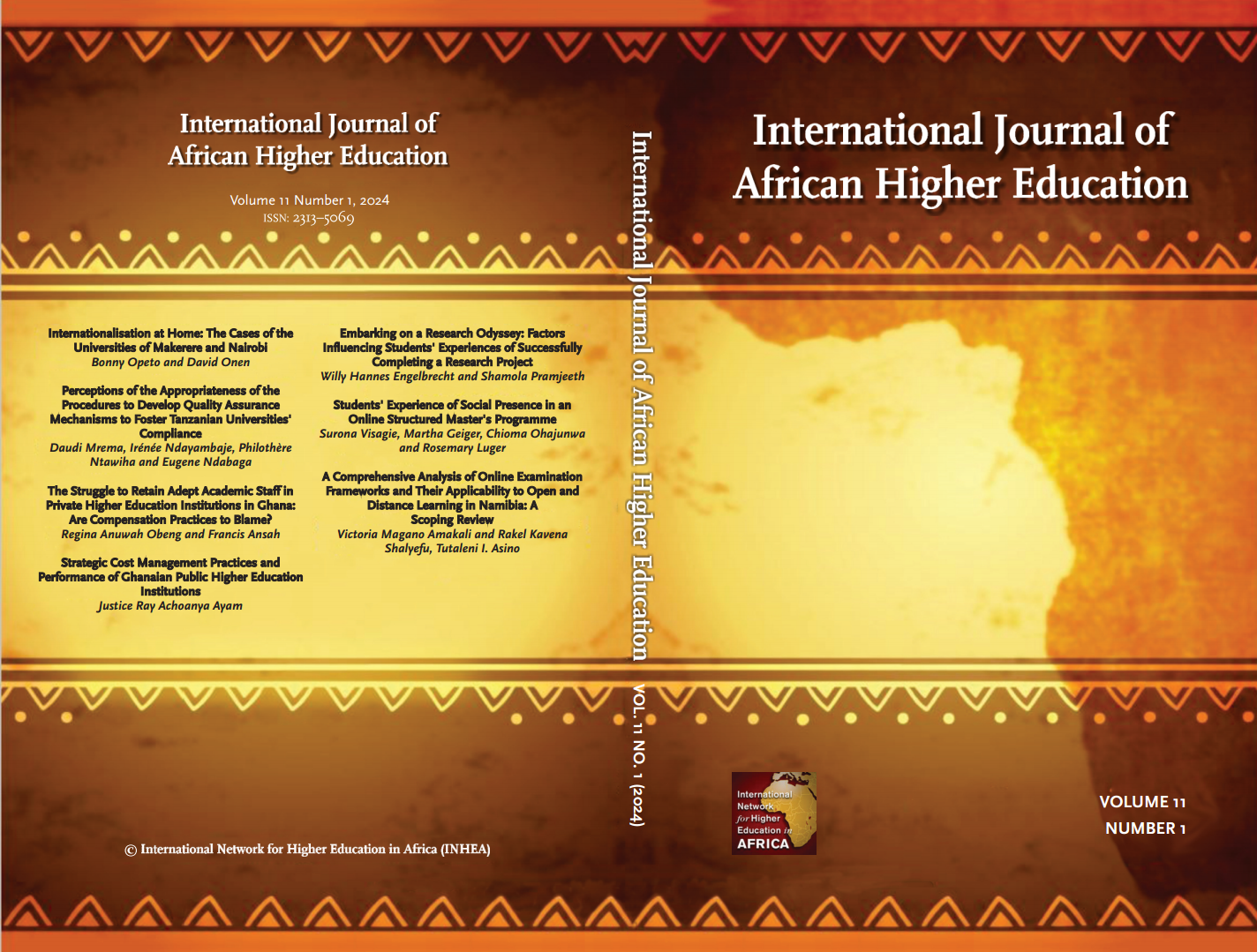Students’ Experience of Social Presence in an Online Structured Master’s Programme
DOI:
https://doi.org/10.6017/ijahe.v11i1.14721Keywords:
social presence, online learning, graduate, virtual, distance learningAbstract
Social presence has six facets (presence, respect, connect, belong, identify and intimacy) that develop on a continuum. It positively impacts students’ achievements in and satisfaction with virtual programmes. The COVID-19 pandemic necessitated a move from face-to-face and hybrid learning to virtual learning in many graduate programmes. This qualitative descriptive study explored the experience of social presence in a virtual structured master’s programme. Data were collected via anonymised email feedback, and semi-structured interviews were conducted with ten purposively sampled participants. The data were analysed by means of thematic analysis and triangulation, member checking and inputs from a reference group supported trustworthiness. The six emerging themes showed that virtual presence and respect were experienced by all participants, while connecting, belonging and social identity were experienced in varying degrees. Intimacy was not achieved. Some participants developed connections that provided encouragement and stimulated a sense of knowing colleagues despite never having met in person. Others were reluctant to make themselves virtually visible. The example set by facilitators and the virtual contact week were important catalysts in the development of social presence. Synchronous tutorials, virtual office hours, small group work, and a social calendar could enhance social presence and strengthen virtual graduate programmes in the higher education environment.
Downloads
Published
How to Cite
Issue
Section
License
Copyright (c) 2024 Surona Visagie, Martha Geiger, Chioma Ohajunwa, Rosemary Luger

This work is licensed under a Creative Commons Attribution-NonCommercial-NoDerivatives 4.0 International License.

